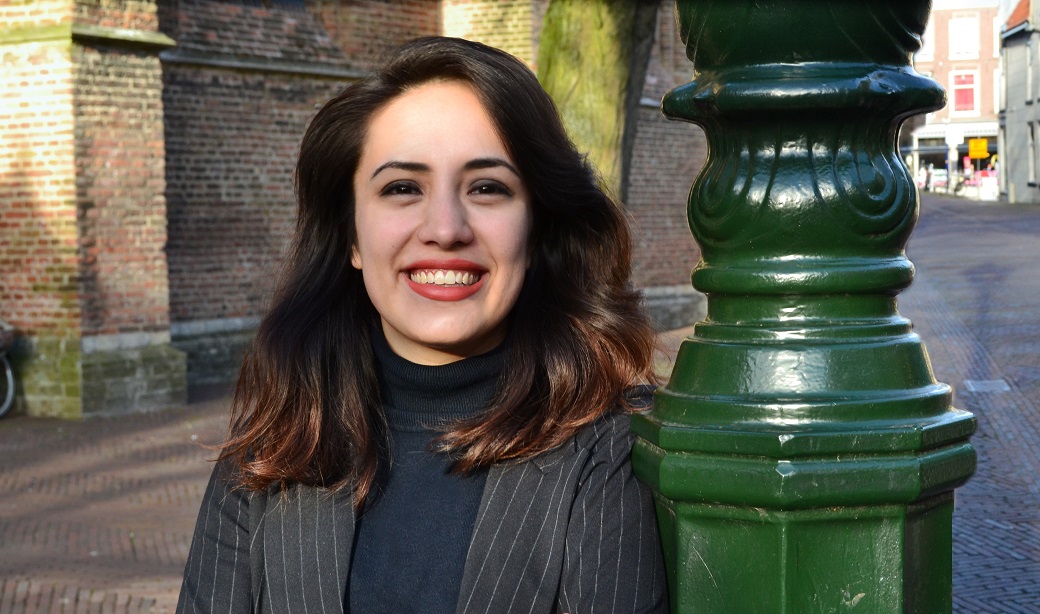Marice Angulo López, president of the Latin American Student Association, thinks international student associations should help tackle integration problems. And not just them.
Marice Angulo López: "We don’t speak Spanish any more in our association." (Photo: Heather Montague)
“I come from Mexico City which is the largest city in Mexico. With almost 22 million people it’s a very different environment compared to here. I remember my first days in Delft. I’m a heavy sleeper, but here I would wake up due to the amount of silence in the city. Now I’m used to it, but it was strange for me. I came here in August 2017 to start a master’s in construction management and engineering and right now I’m starting my graduation.
One of my main concerns that comes from my own personal experience these last two years has been the integration problem. Normally the student associations are kind of isolated because they only get input from students from their regions. So, when I became president of LATITUD we made some changes. For example, we don’t speak Spanish any more in our association and that was controversial at the beginning. The intention was that we should include Portuguese speakers and also open ourselves to Dutch society. Instead of just sharing things from LATITUD to the outside world, we should also try to increase the influx of Dutch students into the Latin community. Now we officially do everything in English and all of our events are open for all nationalities. The only requirement is to be interested in Latin American culture.
‘One of the biggest challenges for integration is the lack of understanding’
We have surveyed students regarding their needs and there’s an opportunity, or crisis depending on how you want to see it, in regards to how the students are heard and how information flows from the bottom to the top at TU Delft. I believe that we as international associations, instead of just being groups that hold parties and motivate the community, are also active actors in this feedback process that is very valuable and could really improve certain areas and create an organically inclusive culture. Instead of being seen as a separate entity, we are a very important part of the community. I really believe in that.
I also think that one of the biggest challenges for integration is the lack of understanding, from both the international and Dutch sides, that is necessary to forge a cohesive community. For instance, when internationals express certain problems, we are inaccurately perceived as looking to be the victims or as seeking attention. Similarly, internationals might wrongfully assume that certain challenges they face come out of a lack of interest from the host culture, when it might be simply that the needs of internationals are unknown, misperceived or miscommunicated.
If we want other people to be tolerant and understand our cultures, we should do the same, that is, be very open and through our actions show what we want to receive from the outside. This is an exercise that both sides of integration should pursue. I consider this as the beginning of a change in the culture of TU Delft itself. It begins with the students.”
Want to be featured in Humans of TU Delft? Or do you know someone with a good story to tell? Send us an e-mail at humansoftudelft@gmail.com
Heather Montague / Freelance writer



Comments are closed.